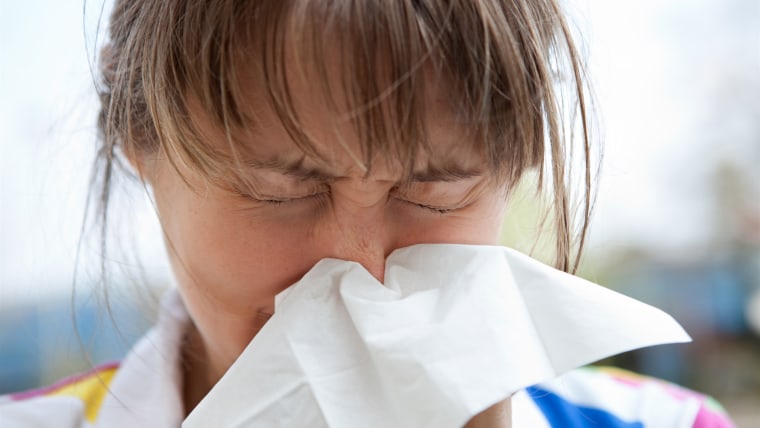So you’ve started the New Year out with the flu. Or a bad cold. Or something nasty.
Here are five things you can do about it:
TAKE AN ANTIVIRAL: If what you have is really influenza, there’s a prescription pill you can take. It’s called Tamiflu and if people take it within a day or two of the first symptoms, it can reduce how long you’re sick and how severe the disease it. The Centers for Disease Control and Prevention recommends it. There’s also a slightly different inhaled drug called Relenza, and an injection that was just approved for the very ill called peramivir.
HIT THE COLD AND FLU AISLE: Decongestants and antihistamines both can help the most annoying symptoms of a cold or the flu – a runny nose, coughing that’s caused by post-nasal drip, tearing eyes. Cough drops or hard candies can soothe a scratchy throat, although young children who might choke shouldn’t get them. Cough remedies containing the suppressant dextromethorphan may help but most contain too little to do much good, and they are subject to abuse by teenagers, especially, looking for a high so watch out for that.

POP A PAINKILLER: Pain and fever relieving medications such as ibuprofen and acetaminophen – sold under brand names such as Motrin, Advil and Tylenol – take away the fever and can help muscle aches. Patients with asthma, high blood pressure or other chronic conditions should check with a doctor before taking them. Children should never be given aspirin – it can cause a deadly reaction called Reyes Syndrome. It’s also surprisingly easy to overdose – acetaminophen, especially, is toxic to the liver and people can accidentally take too much if they take a combination of cold remedies.
DRINK UP: “Drink plenty of fluids” is a time-honored remedy and it’s true. Dehydration is a special risk when people have fevers. The Health and Human Services Department recommends plenty of clear fluids such as water, broth or sports drinks. If you have an upset stomach, try sipping through a straw. It may be easier to suck on small ice cubes or ice pops. And cold or warm drinks can soothe a sore throat.
STAY HOME AND REST: If you have symptoms of flu or a cold, or another virus such as norovirus, the best thing you can do for yourself and others is stay home and rest. You won’t spread your germs that way and people distracted and weary from coughs and fever are unlikely to be effective at work or school. Staying in one room and keeping that room clean can help prevent the spread of infection. Humidifiers or a steamy shower may help people breathe more easily.
Sounds nice but no dice.
These five approaches sound good in theory but there’s either not much evidence to back them up, or they're downright dangerous:
COLD REMEDIES FOR KIDS: The FDA on advises against giving any over-the-counter cold, flu and cough remedies to children under 2, and the Infectious Diseases Society of America says don’t give them to children under 4. The FDA persuaded drug companies to voluntarily take over-the-counter cough and cold drugs for infants off the market in in 2007.
GOING HERBAL: There’s little evidence on most herbal remedies for colds and flu. A big batch of studies now shows echinachea doesn’t prevent colds or flu or even help treat symptoms. The scientific jury is still out on ginseng. One problem with testing herbal supplements is that they come in different formulations, sometimes even using different species of plants. One exception: There is some evidence that fresh garlic might help prevent colds, and there’s little harm in eating it.
ZINC: Theories abound that zinc supplements might boost the immune system, but the Food and Drug Administration recommends against using zinc nasal gel because it can cause a permanent loss of smell. One Canadian study suggests that zinc supplements might help reduce the severity of the common cold, but different formulations of different products make it a difficult theory to test. And while people who have zinc deficiency may have weakened immune systems, that does not necessarily mean that more zinc is better. Whole grains are rich in zinc and a balanced diet may provide all you need. Zinc is toxic in high doses.
COUGH SYRUP: Many over-the-counter cough syrups contain guaifenesin, an expectorant that helps clear mucus, but the American Lung Association cautions that there is no evidence at all that it helps. The American College of Chest Physicians recommends against using any cough syrup.
VITAMINS: Americans love taking vitamins, but it's possible to get too much. Ultra-high doses of vitamin C can cause diarrhea. Although a few studies suggest vitamin C might shorten the duration of a cold, others contradict this, and no major studies show benefit for influenza. Studies also show no benefit to taking vitamin E for colds.